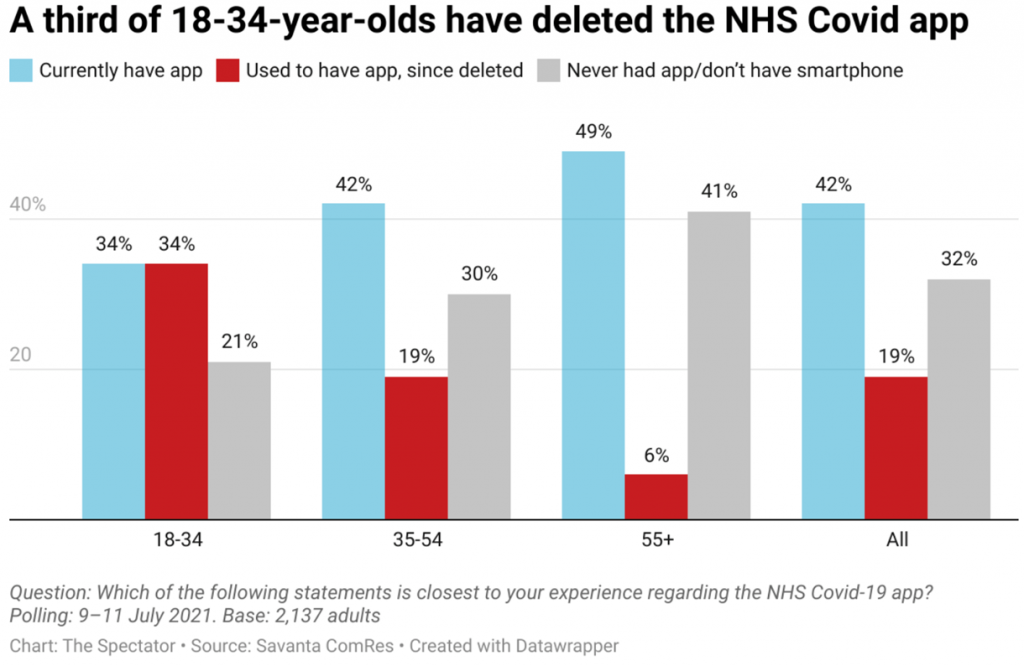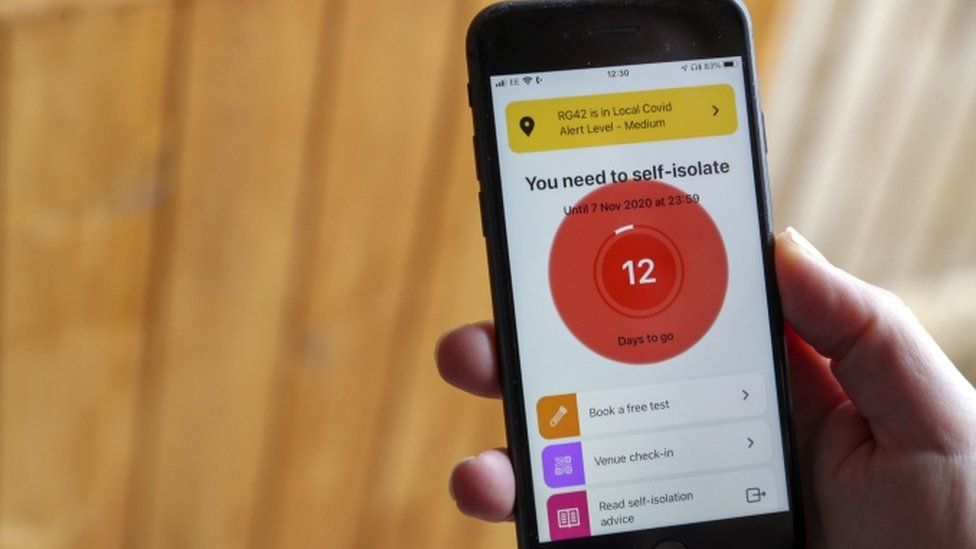Opinion polls are sometimes poor at distinguishing between virtue-signalling and what people really think – respondents tell the pollsters what they think they are supposed to say, especially on issues that have become moralised, like anti-Covid measures.
But actions speak louder than words. So the news that 19% of people have deleted the NHS Covid app (which pings you to tell you to self-isolate if you are identified as someone who’s come into contact with a person who’s tested positive) and so joined the 32% of people who never had it, according to a new ComRes poll, perhaps gives a better indication of how many people are not so keen on Covid restrictions. Among 18-34 year olds, over a third – 34% – have deleted the app, which is as many as still have it, while 21% never downloaded it in the first place – despite 98% owning a smartphone.

To my mind, statistics like these are a much more realistic indicator of who actually supports restrictions, since if you’re not willing to self-isolate when potentially infected, how can you be in favour of less targeted measures? This would mean just 42% of people are genuinely in favour of restrictions continuing.
True, you have to allow for the 16% of adults who don’t have a smartphone. If we assume this group splits in their views in the same proportions as those who do have a smartphone then we get 44.5% against restrictions in practice versus 50.5% in favour. This is probably an upper bound for those in favour, as some may just be saying they have the app even though they don’t, and some may have downloaded it just for appearance’s sake. Furthermore, some may not be supportive of measures beyond isolation of contacts (though I assume that anyone who favours more restrictive measures must favour self-isolation of contacts as it seems the bare minimum of restrictions beyond isolation of the infected).
Among 18-34 year-olds, those opposed to restrictions (by this measure) outnumber those in favour by 55% to 34%.
Such figures sound much more likely to me than the alarming support for draconian restrictions that often appears in opinion polls. They suggest that if politicians think the public are solidly behind the continuation of restrictions then they are in for a nasty shock come polling day. Politicians should pay closer attention to what people do than what they say.











To join in with the discussion please make a donation to The Daily Sceptic.
Profanity and abuse will be removed and may lead to a permanent ban.